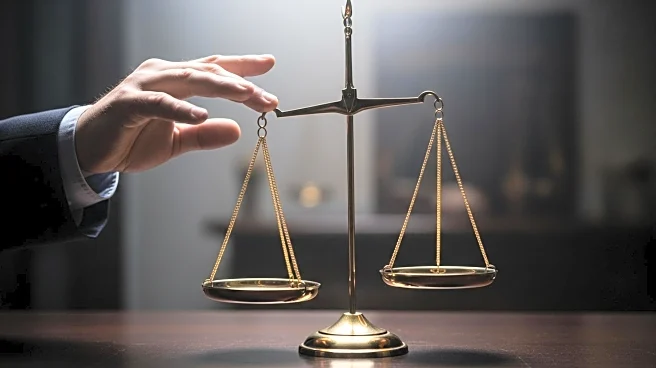What's Happening?
The Justice Department is reportedly considering a criminal indictment against former FBI Director James Comey for allegedly making false statements to Congress. The investigation focuses on whether Comey lied during his congressional testimony on September 30, 2020, concerning the 2016 Trump-Russia collusion investigation. The statute of limitations for perjury charges is five years, giving federal prosecutors until next Tuesday to indict Comey. The case is being handled by the U.S. Attorney’s Office for the Eastern District of Virginia, with a grand jury currently reviewing the matter. The specific charges and the part of Comey's testimony under scrutiny remain unclear.
Why It's Important?
This potential indictment of James Comey could have significant implications for U.S. politics and the justice system. If charges are brought, it may impact public perception of the FBI and its role in political investigations. The case also highlights ongoing tensions between President Trump and former officials involved in the Russia investigation, which Trump has consistently criticized as a 'witch hunt.' The outcome could influence future congressional testimonies and the accountability of public officials. Additionally, it may affect the credibility of investigations into political figures and the administration of justice.
What's Next?
A decision from the grand jury could be imminent, with the statute of limitations deadline approaching. If indicted, Comey may face legal proceedings that could further polarize political discourse. The nomination of Lindsey Halligan to replace Erik Siebert as the top prosecutor in the Eastern District of Virginia may also influence the case's direction. Political leaders and the public will likely react strongly to any developments, potentially affecting upcoming elections and legislative priorities.
Beyond the Headlines
The case against Comey could raise ethical questions about the politicization of justice and the integrity of congressional testimonies. It may also prompt discussions on the balance between political accountability and legal fairness. Long-term, this situation could lead to reforms in how investigations involving political figures are conducted and scrutinized.










